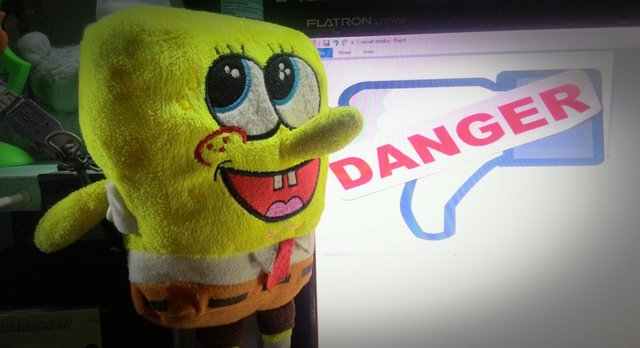How to Minimize the Risk of Spreading LIES on Social Media

[Original Photo]
When sharing something on social media, we can minimize the risk of sharing LIES by looking for the following telltale signs:
- RIDICULOUS, NON-SENSE STATEMENTS like: "Use your phone with your left hand instead of your right hand to minimize radiation exposure., This is 100% effective., etc." (In reality, no medication is 100% effective as no machine is 100% efficient!)
- CLICK-BAITS: Obviously edited photos that are designed to lure people into a post or site that are designed to grab your attention (either for good or bad).
- TOO MANY TYPOS OR GRAMMATICAL ERRORS -Which goes to show that the article was haphazardly written/the video was not professionally edited.
- HEALTH TIPS THAT CAME FROM UNIDENTIFIED DOCTORS/HEALTH INSTITUTIONS. (e.g. Papaya leaves can cure dengue fever., Apple seeds can cure cancer, etc.) Read other articles from the source to see if it's amidst other ridiculous claims, scams or misinformation campaigns. Better yet, ask a professional before following any medical advice you see online.
- MESSAGES THAT TELL YOU NOT TO REPOST THE INFO. PUBLICLY - which only keeps them circulating for a longer time, before being discovered by the authorities. It also makes it virtually impossible to trace their origins.
- EXCESSIVE NAME-DROPPING AND/OR USE OF CELEBRITY PICTURES TO ENDORSE A PRODUCT OR TO MALIGN ANYONE- for obvious reasons
- ONLINE-ADS THAT GIVE SEEMINGLY VALUABLE INFORMATION AT FIRST, THEN LEAD TO A SHOPPING/PAYMENT PAGE WITH LOTS OF CLAIMS FOR A CERTAIN MAGICAL PRODUCT: Try to leave a comment on one of these pages and you might find out that all comments there were made up because the website won't allow you to leave any comment yourself.
- UNKNOWN WEB-ADDRESSES/URL - It's obvious but easily forgotten. Identify reputable websites and institutions to trust when it comes to online news, health tips, etc. Invest some time in reading reviews and look for genuine comments from real people. It's worth the while.
- USE DISCRETION - Ask yourself: "Would I follow this piece of advice myself, or only hope others will find out for themselves whether they're true or not?" "Is it just harmless entertainment, or is it going to mislead others?" - Let's not make others guinea pigs. You also want accurate and useful information as much as possible, don't you?
This list is by no means complete, though I hope this helps reduce our odds of spreading false information. I deliberately provided only general information based on my experience, to avoid showing bias towards or against any entity.
Feel free to comment any additional Info./reminders that you think can help us build better online communities.
Very helpful article. This will help the steemians and serves as one of the guidelines to avoid fake news.
Very nice article bro, i better change my texting to my left hand from now on 👍